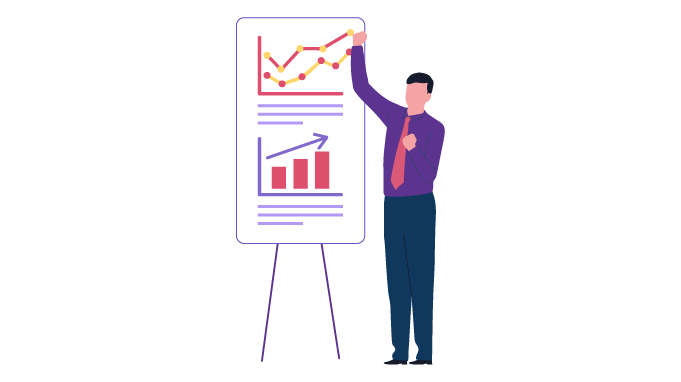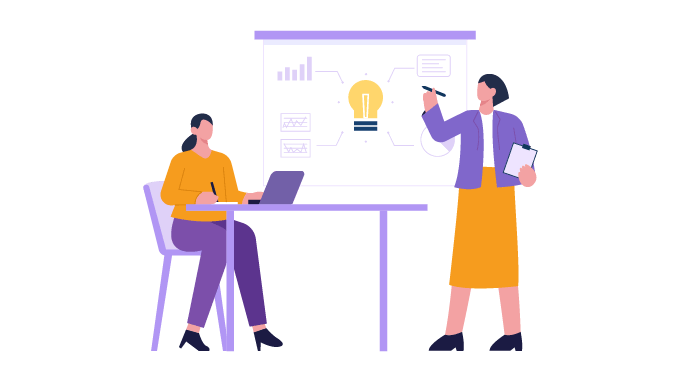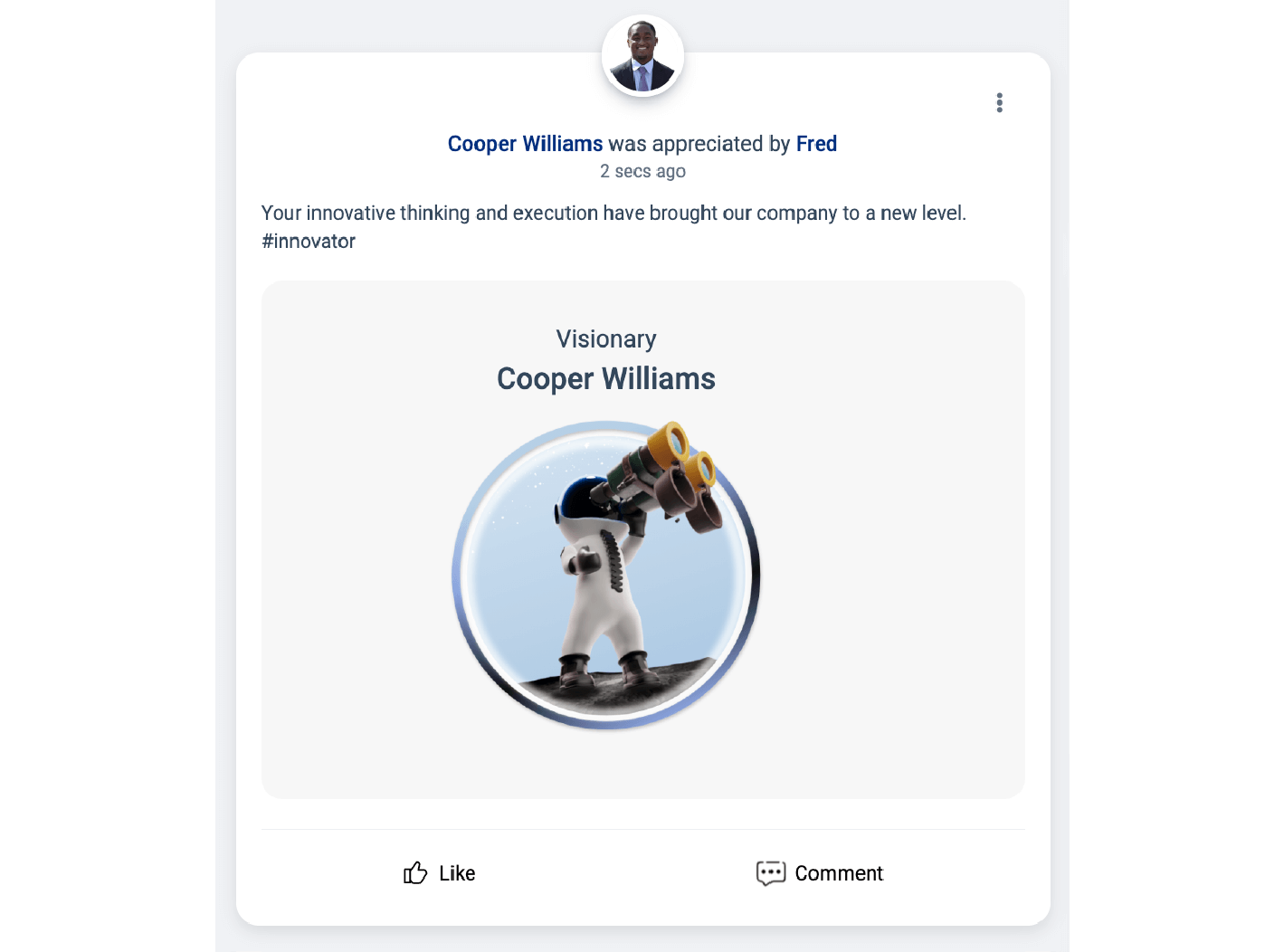8 Key Employee Strengths With Examples You Need To Know And Ways To Improve
An organization is as good as its employees. They are the backbones that make everyday operations possible. However, analyzing the employee strengths to achieve the organizational goals and objectives is a critical factor.
A diverse workforce comprises individuals with unique skills and competencies that define their ability to accomplish the tasks at hand.
As a manager, you must understand their strengths and weaknesses to develop employees’ actions. The main objective should consist of evaluating employees on time to steer the organization toward success in the long run.
This article will discuss the employee strengths that every great leader should look out for.
Key Takeaways
- Understanding the Importance of Employee Strengths
- What are the Key Strengths of an Employee?
- Examples of Employee Strengths to Consider
- Ways to Improve Employee Strengths in the Workplace
What is Employee Strength?

According to a Gallup analysis, employees who use their strengths every day are more productive and less likely to quit their jobs.
Employee strengths refer to the positive qualities, skills, attributes, and capabilities that an individual brings to a workplace or job role. These traits and abilities help them to complete their tasks with ease.
Employees who are able to utilize their strengths to bring efficiency and elevate their performance levels can successfully achieve the desired goals and expectations.
Employees who understand their strengths and weaknesses can learn from their mistakes and improve their overall skillset to become experts in their field. These employees can become great leaders who can nurture the upcoming generations to form an exceptional workforce.
Key Employee Strengths to Empower Your Workforce
1. Disciplined

For an employee to become great in their job, they must remain disciplined and have the ability to connect with their peers in the workplace. An employee must stick to their daily schedules and maintain their calendar throughout the year. It is an essential skill and a positive strength that can be the defining factor between a good employee and a bad employee.
A good employee will ask for timely feedback and work on improving their mistakes. They will also follow-up with their mentors and resolve any shortcomings. In short, they will keep daily tabs on their tasks and formulate a routine which they will strictly follow to manage their work.
2. Communication Skills

Communication, as we all know, is a crucial part of organizational success. Without communication, the long-term goals are hard to achieve, and the cohesion between employees is next to impossible. Employees that can communicate well make it relatively easy to send the precise message and promote transparency. They are approachable, easy to talk with, and diffuse a difficult situation with their sense of humor.
It is a significant strength and an acquired trait achieved with time and experience. Employees with good communication skills actively listen to what others have to say as well. They try to understand the perspective of their peers, relate to it, and never judge others.
Recommended Resource: How Communication Plays an Important Role in Employee Engagement
3. Motivation

Any work that you do will require motivation and passion for achieving the end goal. It’s the same with the employees as well. If they do not have the will to do any job delegated to them, the work will pile up with time and create a significant roadblock.
However, employees who are intrinsically motivated are successful in achieving their goals and responsibilities. They know the secret to push themselves and set a benchmark for others as well. It generates inspiration and determination in others to follow the same path. Thus, it enables the whole team to succeed in the long term.
Learn More: Why Employee Motivation is Important in Any Organization
4. Leadership Skills

Effective leadership influences others to do better. But it does not come easy. Leaders need to have the necessary skills to influence people to perform well and promote good work ethics in the organization.
Employees with good leadership skills inspire others, have a vision, strategize well, and develop new innovations in the competitive market space. They guide themselves and the workforce towards the company goals without compromising personal ambitions. These employees are open to learning, are agile, collaborate well, and embrace change for the greater good.
Recommended: 25 Leadership Qualities That You Need to Know
5. Accountability

A study by ASTD found that chances of completing a goal increase to 65% if you tell someone about your commitments and are accountable for them.
An employee's willingness to clearly understand the responsibilities is a useful attribute. They are capable of getting onboard new projects and the requirements that are needed to achieve any necessary task. It is one of the most crucial employee strengths that are developed with time and experience.
The ability to note down the essential duties and fulfill them with utmost honesty will define an employee’s accountability. Responsible and accountable employees can figure out their flaws and are open to relearning the required skills to accomplish any task. They are aware of their imperfections, which makes them eager to learn and grow themselves.
6. Confidence

Employees who are confident in their job excel well in what they do. They have an undeterred focus and pay attention to every little detail necessary to achieve their goals. The pivotal factor here is that they are knowledgeable and have an in-depth understanding of their work field.
The confidence levels that these employees portray influence others as well. They set specific standards that other employees try to match. Thus, it creates an environment where each individual tries their best and increases productivity within the organization.
7. Resilient and Patience

Resilience and patience is an underrated employee strength that needs to be acknowledged. When employees are persistent in accomplishing their tasks, they never fail the managers’ expectations. Instead, they perform better and outdo themselves. It defines their determination and a never-give-up attitude that plays a crucial role in achieving long-term organizational targets.
Patience and resilience are traits that come with time and practice. Once they explore new opportunities, they are exposed to new challenges. It makes them experienced, and they can tackle any hurdles with a calm and composed mind.
8. Effective Decision-Maker & Problem-Solver

A prominent sign of employee strength is an employee’s ability to solve problems with ease and make the team’s right decisions. With a good presence of mind and a clear understanding of circumstances, employees can solve any obstacle that comes their way.
They are mindful of their environment and have a good awareness of what they are doing so that the outcome is beneficial to everyone involved. Problem-solving and prompt decision-making are skills that need to be honed with time. Employees with leadership qualities know its importance and how it can play a pivotal role in determining organizational success in the long term.
Examples of Employee Strengths
1. Results-Oriented Employee Strengths

-
Drive for Result
Employees with this strength don't just aim to complete tasks; they want results. They are determined and focused on getting things done. They possess a mindset that constantly seeks improvement and success.
For instance, in a sales team, employees with a strong drive for results consistently meet or exceed their sales targets. They proactively seek opportunities, follow up on leads diligently, and strive to surpass set goals.
-
Efficiency
An efficient employee finds the smartest and quickest way to accomplish tasks without compromising quality. They use tools that optimize productivity and look for ways to save time, energy, and resources.
Efficient employees plan their workflow effectively, set milestones, and manage their time efficiently to ensure projects are completed on schedule.
-
Quality Focus
A quality focus means paying close attention to detail and delivering work that meets high standards. Employees with this strength ensure that the work produced is accurate and aligns with the desired level of excellence.
Employees in a customer service department emphasize quality in their interactions. Their focus on quality service builds customer loyalty and enhances the company's reputation.
2. Interpersonal Employee Strengths

-
Service Orientation
Employees with strong service orientation actively seek to understand the needs of others. They actively listen, empathize, and take proactive steps to address concerns or provide assistance.
In an office setting, an employee with service orientation helps colleagues by offering support, advice, and guidance without waiting to be asked.
-
Approachability
Approachability is being open, friendly, and easy to approach or talk to. When employees are approachable, it fosters better communication, teamwork, and collaboration within the organization.
In a team, an approachable manager can contribute to a more collaborative and innovative workplace. It fosters an open-door policy and a willingness to listen and provide guidance actively.
-
Influence
Employees with strong influence can positively impact their colleagues' decisions, behaviors, and outcomes. They can motivate their peers, build consensus, and lead teams to achieve common goals more efficiently.
For instance, an employee with influence can persuade their team to adopt innovative approaches to enhance productivity. Their ability to articulate ideas and convince others can help drive a positive organizational culture.
3. Adaptive Employee Strengths

-
Learning agility
Being adaptable and eager to absorb new knowledge is vital in a rapidly evolving workplace. Employees with high learning agility are open-minded, curious, and ready to embrace challenges.
For instance, consider an employee who has worked in traditional marketing for years but shows the flexibility to learn digital marketing techniques when the industry shifts. This shows their capability in learning and staying relevant.
Learning agility enables employees to stay relevant and competitive in their roles by continuously updating their skill sets.
-
Resilience
Employees with this quality have the mental strength to navigate tough situations without losing enthusiasm or productivity. They can bounce back from setbacks and remain composed under pressure.
For example, when resilient employees face rejection, they use it as an opportunity to learn and improve rather than getting disheartened. They remain focused and maintain a positive attitude.
This approach ensures that the organization sustains its momentum even during turbulent times.
-
Adaptability
Employees who are open to change understand that change is constant and are quick to adapt their workflows. They readily adjust to shifts in the industry, market demands, or internal organizational structures.
For example, consider an employee who works in a company that adopts new technology for better efficiency. Instead of being hesitant, they will proactively learn how to use the new tools and adapt their workflow.
This willingness to embrace change will help the organization stay competitive and responsive to market trends.
Ways to Improve Employee Strengths in the Workplace
1. Encourage Skill Development Programs

Skill development programs provide employees with the tools and knowledge needed to excel in their roles. When employees learn new skills or enhance existing ones, they become more confident and efficient in their roles.
Offering mentorship programs or eLearning courses helps you build a supportive and encouraging company culture for your workforce.
For instance, a sales team could benefit from negotiation skills workshops, while an IT department might find coding boot camps helpful.
2. Integrate Rewards and Recognition Programs

Rewards and recognition programs act as motivational tools, encouraging employees to give their best effort. Employees who feel appreciated for their hard work are more likely to stay motivated and engaged.
For instance, an employee receives recognition for his exceptional problem-solving skills during a challenging project. This acknowledgment not only boosts their morale but also encourages others to work on their strengths to earn recognition.
However, implementing an effective system that rewards and recognizes employees is difficult. Despite challenges, there exist a few practical solutions, such as Vantage Circle’s Rewards and Recognition platform, that lets you publicly acknowledge your peers instantly.
The platform also lets employees earn points for their achievements, which can later be redeemed for various rewards or incentives.

Source: Vantage Circle
3. Support Work-Life Balance

Employees with the flexibility to manage work/life demands report 38% higher levels of commitment to their organization. (Source: IBM)
Encouraging a healthy work-life balance is crucial for employee well-being and strength. Supporting flexible work hours and remote work options allows employees to manage their professional responsibilities while addressing personal needs.
Think of a software developer who, due to remote work flexibility, can adjust their schedule to attend their child's school events without compromising project deadlines.
Furthermore, regularly maintaining a healthy work-life balance is crucial for reducing burnout and enhancing overall job satisfaction.
4. Align Strengths with Roles

According to Gallup, employees are 4 times more likely to be engaged when they can apply their strengths at work.
Aligning strengths with roles in the workplace is like fitting puzzle pieces together perfectly. When employees use their strengths in their roles, they're more engaged and perform better.
Imagine employing a creative thinker for ideation and a meticulous planner for execution. What happens? You get an innovative product with well-executed plans.
Employees feel more confident and satisfied with their work when they're using their strengths. For instance, a salesperson who loves connecting with people and has great communication skills would thrive more in a role where they get to engage with clients.
End Note!
In conclusion, recognizing and harnessing employee strengths is fundamental to fostering a thriving and successful workplace. When employees are empowered to leverage their strengths in the workplace, achieving goals and objectives becomes a natural progression.
Work towards empowering employees that fuel collective success. It's time to take action and build a workplace that thrives on the unique strengths of its employees.






















